The ultimate guide to selling your indie game
At Develop:Brighton Digital, Network N's James Binns laid out the strategy and tactics indies should follow to sell more games
Every established studio has its own secret recipe when it comes to marketing its games. Devolver Digital's strategy is a prime example of not needing to play by the rules to be successful. But as the saying goes: it takes years to be an overnight success. And before Devolver Digital became known for its irreverent approach to publishing games, its founders gathered decades of experience elsewhere.
It's always a good idea to think outside the box, but if you're new to the industry, there are essentials tools and practices that you should be putting to use to get a good head start.
In a Develop:Brighton Digital 2020 talk, James Binns, CEO of advertising and games media business Network N, provided an in-depth breakdown of the tools indie developers need and when to deploy them, and why marketing should be planned even before a single line of code is written.
Things you should do before starting development
- Commit to learning
The first thing any developer needs to do is commit to learning about marketing and how to sell games. If you're reading this article, it's already a good start. When developing a game, it can be easy to get lost in the technical and creative aspects, but if you're hoping to make a career out of it, you need to be interested in the other facets too.
"You have to commit to actually understanding distribution and marketing to sell more indie games"
"You should really be seeking out knowledge around games promotion and marketing," Binns said. "It is more complex that people give it credit for. There's a lot of great resources. I'd recommend Simon Carless' game discoverability [newsletter], on Substack. There's also GameAnalytics that does create content, and you can always follow clowns like me on LinkedIn because we're happy to share insights all the time. You have to really commit to actually understanding distribution and marketing to sell more indie games."
You can also have a look at the resources in the GamesIndustry.biz Academy, where you'll find an entire section dedicated to making money from video games.
- Research the market, trends and demand
This is a topic Mike Bithell touched upon last month during our GI Live: Academy event: you should carefully research the games market before making any decision on what to work on. There are several facets to that research, the first one being to look into recent successes in the industry.
"You really should be looking at what works and why," Binns said. "You may have lots of thoughts about what you want to make, but understanding the existing trends will get you a long way quicker."
He took the example of three games that blew up this summer: Kinetic Games' Phasmaphobia, Mediatonic's Fall Guys and Innersloth's Among Us. He suggested every developer should take the time to try and understand why these games became so popular.
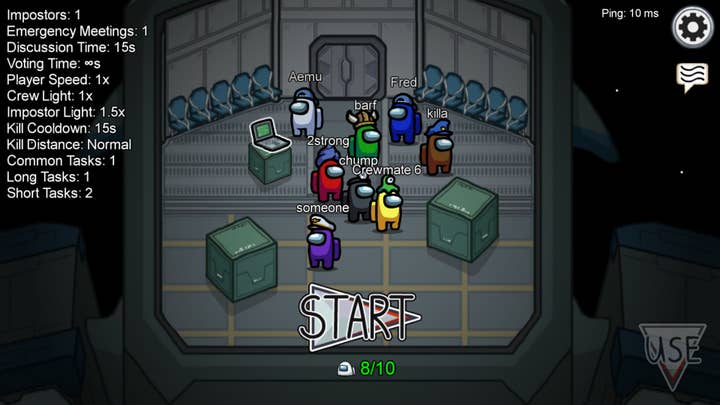
"These three games, they're multiplayer, they have a shared experience," Binns said. "One thing I find great about games like Fall Guys is, if I have a great time, it doesn't make someone else's time miserable. Two of these games also appeal to kids. Think about how you can make games for younger people -- don't always go for the dark, gritty reboot. All three games are fairly easy to get started on, [they have] simple rule sets, not 100 hours grind until it starts getting good. And they're all fun to watch."
In addition to looking into recent trends, you should thoroughly research your market, looking at the audiences for other games in the same genre, or viewership numbers for similar titles on streaming platforms.
"There are mountains of great tools you can use," Binns said. "You can look at what people are watching on Twitch, you can look at SteamSpy, you can look at Steam Charts."
"Think about how you can make games for younger people -- don't always go for the dark, gritty reboot"
Finally, you should look into whether there's demand for the type of game you're hoping to develop. It's closely linked to the two previous points but, to Mike Bithell's point during GI Live: Academy, here it's more about identifying whether you could reach an underserved audience.
"Generally, you can look at what type of genres and what type of things people want," Binns said. "You can do this using Google AdWords. It will tell you what people are searching for."
One of the ways you can apply this is by researching what genres people are looking for. Identifying what Binns calls "passive demand" is really important. If you want to read more on the topic, Cassia Curran explored how to conduct market analysis during our GamesIndustry Investment Summit Online over the summer.
- Use a third party game engine
Before settling on your next project, you need to choose your engine carefully. If you're hesitant, the GamesIndustry.biz Academy has in-depth guides on all the major engines on this page. What matters is that you go for an engine that makes it easy to put your game on a wide variety of platforms.
"The idea that you would start your game using a graphics engine like Unreal or Unity makes a ton of sense," Binns said. "Because you are able to make your game work on different platforms really quickly, and if your game does work, you'll want to port it as quickly as possible to other platforms."
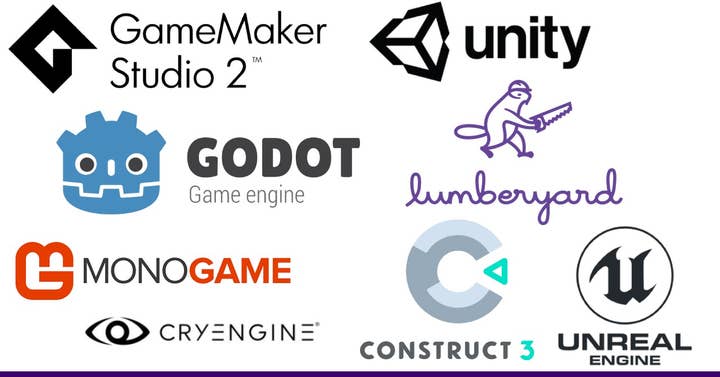
Things you should do early in development
- Ask how will your game stream
Early in development, you have to work out a way for your game to be fun to watch. That doesn't necessarily mean that it should be its main feature, but figure out potential bottlenecks that could prevent your game from being easy to stream.
"If you can make it fun to watch then it's much easier to distribute and get PR for it," Binns said. "And you will need to think about how you bake it in from the start. Some people try to retrofit a spectator mode and work out where the camera is going."
However, Binns added, you shouldn't decide that your title is going to be an esport. It's the community that will decide if it's going to be an esport, as competitive play may naturally emerge if you've made something that is multiplayer and fun to watch.
- Start marketing as early as possible
Once you've started development, you need to start thinking about marketing almost immediately. There's no "best time" to do it, you should just factor it in from the get go. Binns mentioned a running joke among games marketing agencies about how indies will spend all their savings and years of their life developing a game, but only when there's two weeks to go until launch will they realise they need to start doing PR for it.
"If you haven't started thinking about marketing your indie game, start now"
"There's a Chinese proverb, unattributed, that says: the best time to plant a tree was 20 years ago, the second best time is now," Binns said. "No one's gonna steal your idea, unless it's absolutely completely different to anything else. But the weird thing is, if it's that great an idea, no one saw it coming. So really you have to start super early. If you haven't started thinking about marketing your indie game, start now."
- Engage with distribution early
Marketing is not the only thing to factor in from the start. You should also think about the various distribution channels at your disposal. If you have a publisher, this is the main thing it will do for you, but if you don't, then you need to get started on figuring it out.
"A big part of your success is going to be your ability to engage with distribution," Binns said. "[Mediatonic and Devolver Digital have] attributed a large portion of [Fall Guys'] success to the work they did with PlayStation Plus, making it a free game.
"Now, when your game is a hit, lots of distribution [channels] will come to you and people will want to put it on Xbox Live and other services. But there's no harm getting ahead of that and reaching out to try and work out where and how you can take advantage of other methods of distribution."
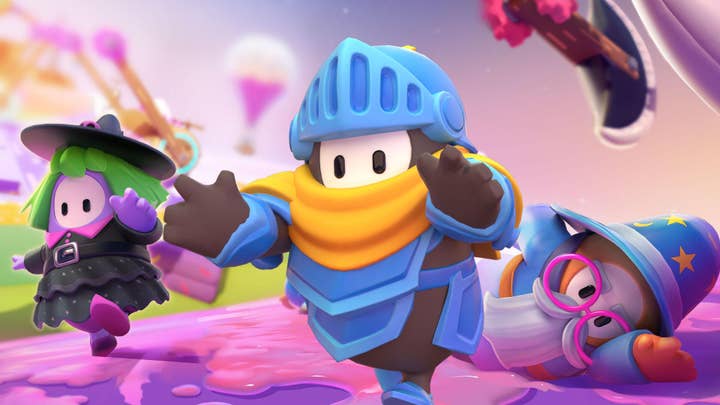
The tools you should use or build
- Get KeyMailer, GamesPress and MailChimp accounts
Binns highlighted a shortlist of websites and apps developers should be set up if they want to improve their chances of success. First in line is the key distribution platform Keymailer.
"Keymailer is the easiest, fastest, cheapest way to get started," Binns said. "You can sign up for a free account, track requests, review channels, issue keys, track coverage for free. And if you want some of their premium services, they start at about £100 for indies. We are amazed when we see people that aren't using that tool."

Secondly, get a Games Press account. It gathers press releases and assets from across the industry, and is an easy way to reach the press. Pricing starts at around $70 a month, but there's a free version that limits your announcements to one a month.
Finally, you should also be building an email list, and the easiest way to do so is MailChimp.
"The baseline package from Mailchimp is about $10 a month, and that can store 500 contacts," Binns said. "It goes up in prices as you get more contacts on the list, but it's a really easy way for you to build out a way to contact the people who are interested in your game directly."
- Build up social media presence
In addition to these business tools, you want to be building up your social media presence. But don't get hung up on follower counts on Facebook and Twitter.
"They're vanity metrics," Binns said. "You'll think you want to have a lot of followers, but if you look at even big games, they have very few followers. It's very easy to buy reach on Facebook and Twitter, so don't be sad if you don't build a massive follower count.
"You really are trying to find some super-engaged [followers] that really love the game. A hundred good ones are better than a thousand people that aren't very interested. And look at what game developers are doing on Discord right now, you'll see they're all building out really strong communities on the tool."
"A hundred good [followers] are better than a thousand people that aren't very interested"
- Build a website
You shouldn't solely rely on social media. Those channels have become so prominent for promoting games, many small developers don't take the time to build a proper website anymore. But a website is actually a crucial tool for linking to your various platforms and channels, or redirecting people when they click on an ad.
"I know that you can do most of the stuff you want inside Steam or inside the Xbox One, PS4 and Switch dashboards, but it's dead important you have your own website as well," Binns said. "Now part of this is because, as people are interested in the game, you want to be able to push them to the relevant stores, and have a place to link to from your marketing promotion that pushes the relevant stores. You can build websites from [platforms] like Squarespace -- they're cheap, like $100 a year."
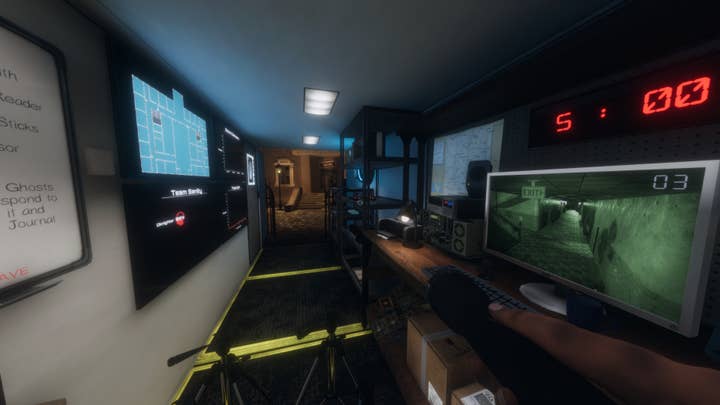
- Use tags to help with discovery
One last tool you should definitely be using as you prepare for launch is Steam tags, which are a great way to boost discoverability.
"If you are thinking about where you want your game to fit into the Steam ecosystem, you really need to be thinking about which tags you're going to have your game assigned to," Binns said.
Using tags is one of the many ways you can maximise your game's chances on Steam. You can read everything you need to know about publishing on Steam, direct from established developers and Valve itself, in these GamesIndustry.biz Academy guides.
Essential early marketing efforts
- Make a trailer that shows gameplay
Once you've set up all the tools for your success, there are essential marketing materials that you should create. The first one is a trailer. But make sure you make a trailer for your game, not for its genre.
"Show gameplay in your trailer. This helps to manage expectations of what the game's going to be like"
"Frequently, people are so into their lore, they'll make a trailer with loads of spaceships and people looking a bit moody," Binns said. "And really they're just advertising spaceship games. Or if you look at the trailers for different tank games, they could be for any tank game most of the time. So it's very important that you show gameplay in your trailer. This helps to manage expectations of what the game's going to be like as well.
"If loads of people download your space trading game which is mostly spreadsheet-based, because they've seen a trailer that makes it look like Elite Dangerous, they may be disappointed. The trailer to watch right now, which I love, is the GTFO one. It gives a really clear indication about what the game is and has loads of gameplay in it."
Alconost's Natalia Shuhman recently offered practical advice on creating a trailer on the GamesIndustry.biz Academy, highlighting seven questions to ask before creating yours.
- Make an explainer video
In addition to your trailer, you should make an explainer video, Binns advised, and release it around the same time.
"This is really important because you want to describe exactly what you do in the game. Make one that can work while on social media. So this is going to be a video of the game with text overlaid and voiceover. Make one that can autoplay on silent, [so you can] distribute it on social media."
- Go native
By that point you should have at least two very exciting videos to share on your social media channels. And the way you share these is actually crucial -- do not embed a YouTube link.
"This is a thing I feel really strongly about," Binns said. "When you upload a video to Facebook or LinkedIn or Twitter, embed the file as a native video. If you embed a YouTube file on Facebook, then nobody sees it, because Facebook will crunch the reach of an embedded file. So it's really important that you just get the video file and upload it natively. So many people make that mistake, it drives me mad."
- Make a demo
After your trailer and explainer videos go live, the next natural step is to release a demo. With the advent of events like the Steam Game Festival, demos are increasingly important for indies.
"There's hundreds of devs making demos now, and if you want to see the best example of a demo [look at] the Party Animals one," Binns said. "Out of the blue, the game just took off and it was in one of the biggest games on Steam for the week it was available as a demo.
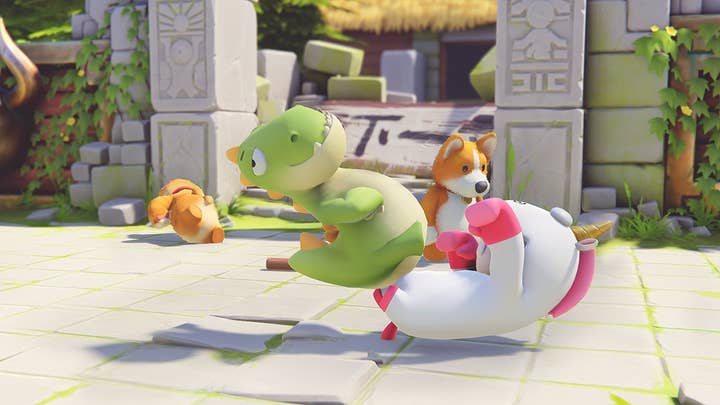
"When you start making your game, think about what the demo would be like, think about the vertical slice of fun you might give away to get people into it, because the demo will be the thing that influencers play when they first start touching it. A demo is the first touch point with the game where you're trying to get people interested in sticking around, so you definitely want to be making one."
Melbourne-based developer Art Of Play recently shared its tips on how to build a demo with the GamesIndustry.biz Academy -- you can read more about it here.
- Ask for actions
Whenever you share these little marketing nuggets with your community, whether it's a trailer, a demo or a new screenshot, you should always ask people to take action.
"Asking for action is a thing that people are shy to do but it's really important"
"Ask them to follow you, to wishlist the game, to join the Discord," Binns said. "Asking for action is a thing that people are shy to do but it's really important. If you want to know everything about marketing, buy a book called 'Influence: The Psychology of Persuasion' by Robert Chaldini. And when you've read it, read it again and memorise everything in the towel experiment. It's crazy and you'll really want to understand how, when you ask for things in certain ways, you get what you want."
Having a call to action is at the core of Chris Zukowski's approach to marketing. The Adventure Mountain founder discussed the fundamentals of marketing for indie developers who don't know where to start during a GDC talk in March.
- Nurture direct relationships
Once you've managed to grow a small community and started approaching journalists and influencers for coverage, it's crucial that you cultivate direct relationships with some of them.
"Keymailer and Games Press will both give you general buzz about the game, but you do need to pick out specific journalists and influencers that like and play games a bit like yours," Binns said. "See who's reviewed games [like yours], and reach out to them now. Press teams get thousands of emails a month [from developers] trying to get coverage for their game. But if you can find a reason why your game is relevant to an individual and contact that individual, make them care, you'll be much more likely to get results."
"If you can find a reason why your game is relevant to an individual, you'll be much more likely to get results"
- Buy some ads
While advertising is a very common route to use for most big game companies, indie developers don't tend to see it as a viable path, often due to its cost. But there's such a variety of options available that indies shouldn't discard this option.
"However you choose to market, advertising needs to be a part of this. The stores are super crowded and really struggle with surfacing games, and there's so many people who are so frustrated with Steam discovery. It's nuts that not enough people think about the web as a discovery surface. It's massive.
"You can reach your players. You can cut the information in the right way. You can buy Google ads that are cost effective. You can work with media owners to give really big targeted reach. And the reach of an ad compared to the reach of any piece of PR is so much higher. So really you want to be thinking about how advertising can be part of your mix."
- Get some help
Finally, while this may sound like a lot of information to digest, don't forget you don't actually have to face this alone. If your budget permits, you should get some help.
"You need to learn how marketing works, but at the same time, people in marketing/publishing aren't trying to become experts in Unreal engine and C++, they are not trying to learn the discipline of development, because it's really hard and takes a bunch of skills. And marketing/publishing are similar, there is expertise required to do this well.
"So, even if you don't want to buy loads of ads find someone that's smart that can help you with this, talk to a PR agency, talk to a marketing agency, talk to media owners... They are the people that think about this every day, that have gone through hundreds of launches of indie games, and will be able to bring you loads more insights."
More GamesIndustry.biz Academy guides to Selling Games
Our guides to making money from video games cover various aspects of the publishing process, whether you're a young game developer about to start a new project or an industry veteran:

